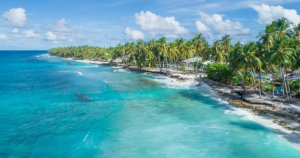
Top Russian officials named in Pandora Papers

Offshore assets belonging to Russian officials and top executives at state-owned companies featured prominently in material published last week by the International Consortium of Investigative Journalists (ICIJ). The main revelations concerning Russia included:
- Konstantin Ernst, the head of state-owned Channel One who is often described as President Vladimir Putin’s image-maker-in-chief, was revealed as a beneficiary of an offshore company registered in the British Virgin Islands. The company is part of a project to demolish Soviet-era movie theaters in Moscow and replace them with shopping malls. State-owned bank VTB has put up billions of rubles to finance the development project, according to the investigation.
- Svetlana Krivonogikh, who owns shares in Kremlin-connected Bank Rossiya and is described euphemistically as a ‘close acquaintance’ of Putin, reportedly owns a €3.6 million ($4.2 million) apartment in Monaco registered as an offshore asset in 2003.
- Anastasis Ignatova, the step-daughter of Sergei Chemezov (the influential head of state defense corporation Rostec) owns offshore assets worth at least 22 billion rubles ($415 million), including a villa close to Marbella, Spain, that she shares with other members of the family, and a 85-meter superyacht valued at 10 billion rubles.
- Andrei Bolotov, son-in-law of Nikolai Tokarev (the head of state-owned oil pipeline company Transneft) owned an offshore company that won contracts from Transneft worth billions of rubles. In the same year that Transneft was sanctioned by the EU, Bolotov acquired citizenship in an EU country.
- German Gref, the head of state-owned banking giant Sberbank, set-up a $55 million trust fund in Singapore to manage his family’s assets in 2011. The fund was under the control of Gref’s 24-year-old nephew, Oskar, but later liquidated. Its assets were transferred to the Grand Investment Trust, which is owned by Gref’s long-time acquaintance Kirill Androsov, former deputy minister of economic development.
The official Russian reaction to the disclosures was predictable, with many quick to point out — with a knowing smile — that no U.S. individuals were named in the leak. Nor did the Kremlin see any reason for an investigation. “We did not see any ‘hidden wealth of Putin’s circle’,” said presidential press secretary Dmitry Peskov on Monday. He added that the publications represented “an assortment of rather unfounded statements”.
At the same time, pro-Kremlin activist Alexander Ionov, announced Monday that he was preparing an appeal to the Prosecutor General to recognize ICIJ as an ‘undesirable organization’ — which would effectively ban it from operating in Russia. Ionov claimed the Pandora Papers were just a “leak from the American secret services”, and highlighted the role of two journalists from independent media outlet iStories, Roman Anin and Roman Shleinov. He also noted the involvement of New Times editor-in-chief Yevgeniya Albats.
Why the world should care: The Pandora Papers are just the latest evidence of the hypocrisy of the Russian elite, which attacks media organizations, NGOs and individuals over allegations of international funding, while taking full advantage of offshore finance. It’s unlikely to be a coincidence that last week also saw three more organizations, including investigative outlet Bellingcat and nine individual journalists, added to Russia’s list of so-called ‘foreign agents’.





